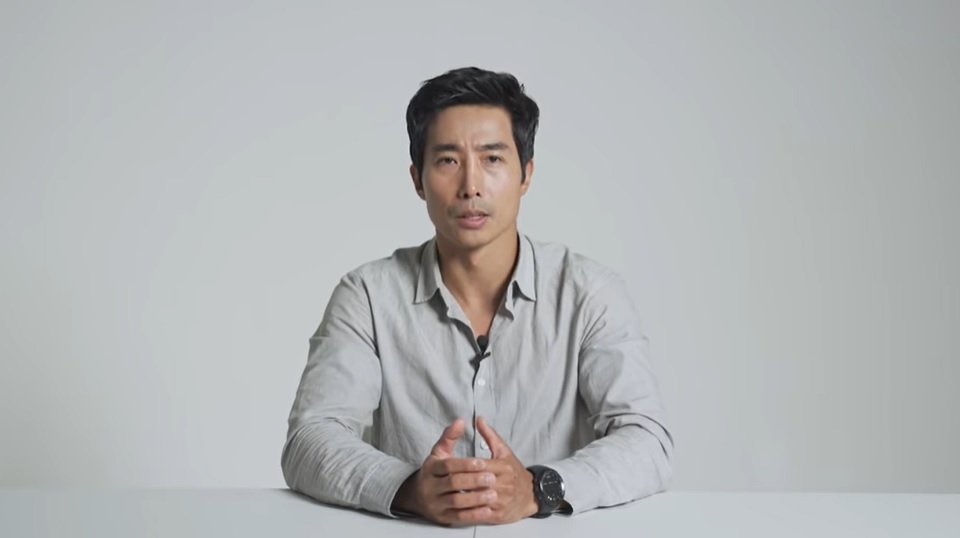Broadcasters, companies pay the price for YouTube star’s unchecked background
By Lim Jang-wonPublished : Oct. 18, 2020 - 16:07

As the popularity of YouTubers and social media influencers rise, so too do controversies surrounding them. With the online stars appearing on popular television shows and in advertisements, verification of their background has become a rising issue.
Controversy arose last week when Rhee Keun, popularly known as “Lt. Lee,” faced allegations that he was convicted for a 2017 sexual assault. Lee had already gone through a debt scandal at the beginning of the month when he was accused of not paying back 2 million won ($1,750) in a personal loan.
The YouTube star who gained popularity as an instructor on YouTube show “Fake Men” was enjoying unparalleled popularity in the months leading up to the outbreak of the scandals.
Rhee had appeared in popular terrestrial broadcast shows such as SBS’ “All the Butlers” and MBC’s “Radio Star.” He also appeared in the cast of Discovery Channel’s “Survival,” among other shows.
With the outbreak of the controversies, broadcasters have edited Rhee out of shows or made unavailable online videos featuring Rhee.
Similarly, companies that once scurried to sign on Rhee to market their products rushed to erase any trace of the man at the center of snowballing controversies.
Local burger chain Lotteria took down Rhee from all its advertisements of the newest burger that featured Rhee as the main spokesperson, and KB Savings Bank removed Rhee from its campaign as soon as the earlier debt scandal broke.
Rhee is not the first online celeb to become mired in controversies. In late July, several YouTubers apologized and temporarily stopped uploading videos after it was discovered that they had been advertising products without informing viewers. Also, a YouTuber faking Tourette syndrome and another YouTuber who falsely claimed that he had been delivered pizza and chicken from which bites had already been taken infuriated viewers.
While YouTubers are not under strict scrutiny for their controversial actions, matters become more serious when they migrate to television and advertising.
“(The phenomenon of) Pop culture consuming the image of the star made by the platforms, instead of the star himself, can be observed quite often around the world,” said professor Yoo Hyun-joo of Yonsei University, who specializes in media studies and culture theory. “Unless the person were a politician, a public figure, it would not be possible to verify his past behavior beforehand.”
Verification of a non-celebrity’s past has raised many questions since the beginning of the year. One of the participants of Channel A’s reality TV show “Heart Signal,” after he had been cast for the show, was found to have an assault record. In other cases, people who were victims of celebrities with records of school bullying spoke out through social media.
There are now some voices calling for critics to stop recklessly exposing YouTuber stars’ pasts.
Kim Egg, who manages the YouTube channel “Physical Gallery” and produces the popular YouTube Show “Fake Men,” took down all videos after the past records of multiple instructors that appear on the channel were exposed.
“I feel responsible for the trainees in our recent program, instructors and even their families being under severe stress from extremely malicious comments and being consumed as gossip and a social issue,” posted Kim on his YouTube. He had previously posted on Instagram that the continued criticism of the people appearing in his channel may end up killing someone.
What is unique about the Korean media system, according to Yoo, is that examination or verification of the background of stars getting the spotlight has become the business of social media platforms such as YouTube. Both supporters of the personalities in question and those who are against them consume the unfiltered information as content, and YouTubers creating such content stand to make money.
Meanwhile, Rhee posted a video of an interview, on YouTube on Friday, with a person claiming to be one of the perpetrators spreading material defaming Rhee. According to the man, he and fellow administrators of a webpage spread both false and true stories about Rhee in order to increase daily web traffic.
Rhee said the head administrator for that webpage was a minor and released a text of the head administrator‘s explanation and apology, in which he admitted that positive posts concerning Rhee were filtered out to make the issue more controversial.
By Lim Jang-won(ljw@heraldcorp.com)
-
Articles by Lim Jang-won



















![[Today’s K-pop] Treasure to publish magazine for debut anniversary](http://res.heraldm.com/phpwas/restmb_idxmake.php?idx=642&simg=/content/image/2024/07/26/20240726050551_0.jpg&u=)